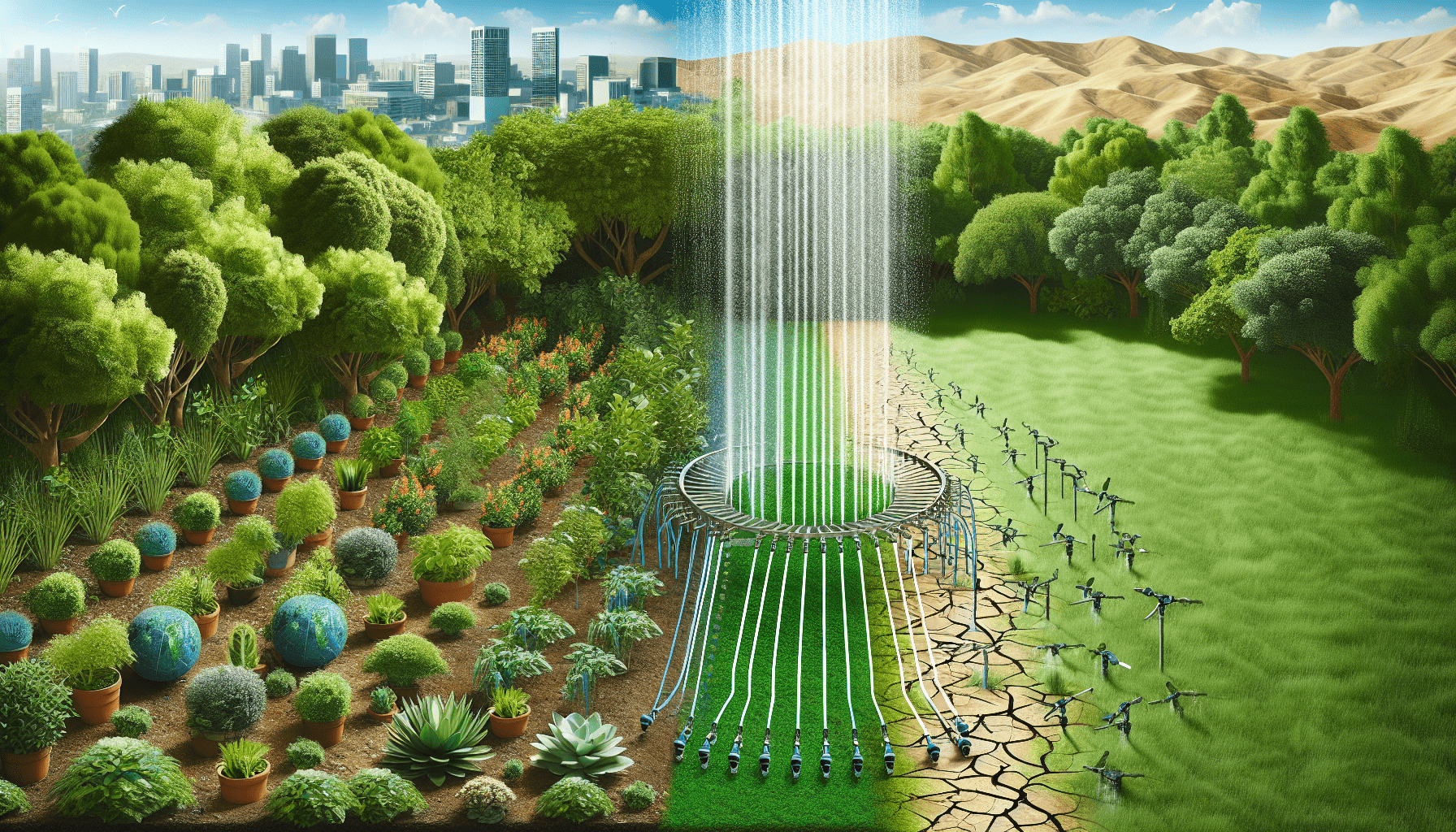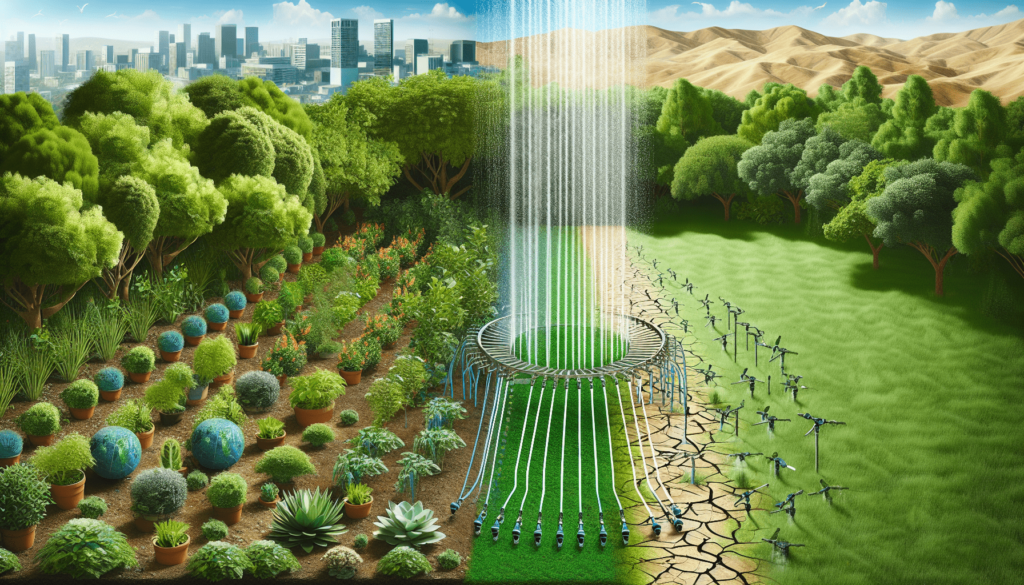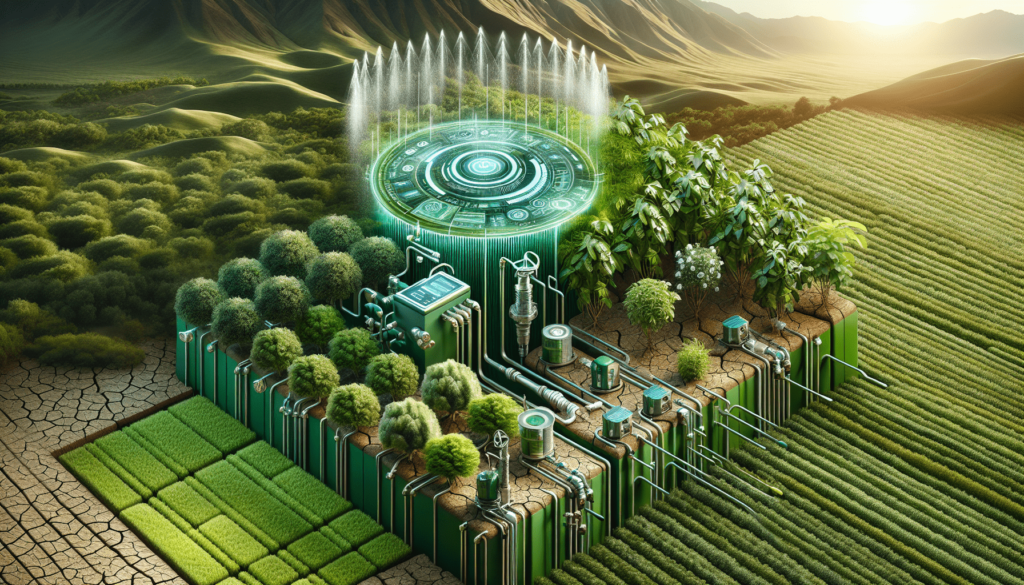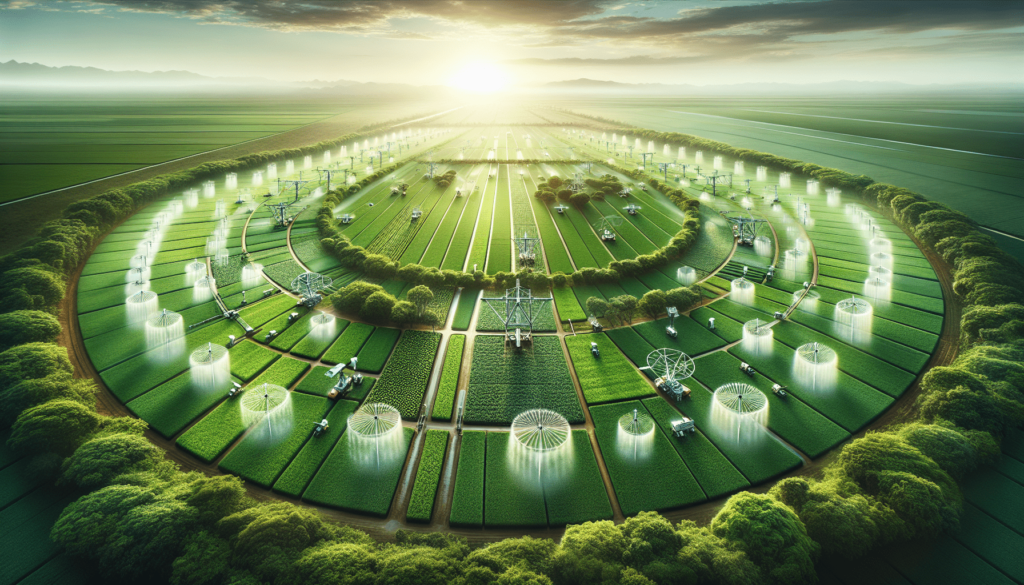
Hello there! As someone who cares about conserving resources, you’ll find this article, “Conserving Resources: How Much Water Does Smart Irrigation Save?” quite fascinating. It delves into the world of modern watering systems, specifically focusing on the innovative technology of smart irrigation. You’ll get to discover how this tech-savvy approach not only promotes healthy plant growth but also plays a significant role in reducing water waste. Be ready to explore how the simple act of upgrading your irrigation system can make a tremendous difference in conserving one of our planet’s most precious resources – water. Are you curious about how smart irrigation systems might help you save water? Well, you’re not alone. Water conservation has become a hot topic in recent years given the increasing combination of shifting weather patterns and growing population pressures. We’ve all heard about the rising demand for sustainable and environmentally friendly practices, but just how effective are smart irrigation systems at saving water? Let’s dive in and find out.

Smart Irrigation Systems: A Brief Overview
A smart irrigation system is a step up from traditional irrigation methods. Instead of a simple timer-based system that waters your lawn at pre-set intervals, a smart irrigation system is equipped with sensors and sophisticated algorithms that allow it to respond to real-time changes in weather and soil conditions. Basically, these systems can efficiently deliver exactly the right amount of water that your plants need at any given time.
Consider a hot, dry summer day when your plants are thirsty. A conventional system would either water according to schedule (potentially over-watering and wasting water) or under-water your plants if it’s set for the cooler part of the day. But with a smart irrigation system, it senses the dry conditions and adjusts to deliver the necessary amount of water, no more, no less.
But the question remains: How much water do smart irrigation systems actually save?
The Facts: How Much Water Does Smart Irrigation Save?
According to various studies conducted by leading research institutions, smart irrigation systems can potentially save a significant amount of water.
Here are some impressive figures for you to consider:
- A study by the University of Florida indicated that smart irrigation systems could result in water savings of up to 30% compared to traditional systems.
- The Water Research Foundation found that weather-based irrigation controllers could reduce annual irrigation water use by 20-40 percent.
- The Irrigation Association says that upgrading to a smart irrigation system can help reduce water usage by 15-20 percent on average.
These are all promising figures that show smart irrigation systems are definitively more efficient than their earlier counterparts. Now, let’s understand why this is the case.

Behind the Numbers: How do Smart Irrigation Systems Save Water?
Smart irrigation systems are able to save water due to their advanced features and functionalities. Here’s a detailed look at how they achieve it:
Weather-based Controllers
The weather-based controllers embedded in smart irrigation systems adjust watering schedules based on weather data. These controllers use local weather data to adjust watering times and frequencies, ensuring your garden gets the exact amount of water it needs without overdoing it.
Soil Moisture Sensors
Another key feature of smart irrigation systems are soil moisture sensors. These sensors measure the moisture level in your soil and communicate this data to the irrigation controller. This means watering can be adjusted not just based on weather conditions, but also on real-time soil conditions.
Leak Detection and Notification
Smart irrigation systems can detect leaks and unusual water flow. If a leak is detected, these systems can adjust the watering schedule to compensate or can notify you so quick repairs can be made.
Is a Smart Irrigation System the Right Choice for you?
While the numbers clearly favor smart irrigation systems when it comes to water savings, your decision should also factor in other aspects:
Initial Costs and Return on Investment
Smart irrigation systems come with a higher up-front cost compared to traditional systems. However, the water savings you can achieve in the long run can offset this initial cost. Consider your local water costs, rebates, and the size of your landscape to generate a cost-benefit analysis.
Integration and Usability
Take a look at how easily the smart irrigation system can be integrated into your garden or landscaping setup. Also, consider the ease of use. A system that is complex to operate may not offer the convenience you’re looking for.
Sustainability Goals
If you have strong sustainability goals, investing in a smart irrigation system fits into that approach seamlessly. It reduces your water footprint and aligns with environmentally-friendly practices.

Conclusion
With water conservation becoming increasingly critical, smart irrigation systems present a compelling solution to meet your watering needs without wasting this precious resource. While the amount of water saved can vary due to factors like your local climate, the type of plants, and soil conditions, the consensus is clear: smart irrigation systems are an effective way to conserve water. So, if you’re interested in creating a greener tomorrow, you may just want to consider moving beyond the traditional watering methods and embracing the intelligence of a smart irrigation system.
Remember, every drop saved counts towards the broader goal of sustainable living.
